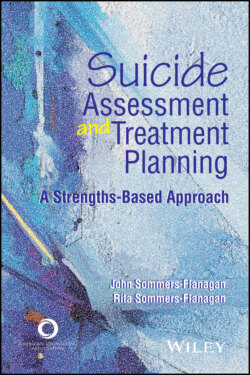Читать книгу Suicide Assessment and Treatment Planning - John Sommers-Flanagan - Страница 57
Social Media and After-Hours Contact
ОглавлениеSocial media is now so ubiquitous that school and mental health professionals must address it within the informed consent process (Wheeler & Bertram, 2019). In some cases the messaging can be simple, as in an informed consent form that reads “Please note that because of ethical issues, I don’t socialize with clients outside of scheduled professional appointments, including through social media.” A specific statement such as the following might be useful:
In my counseling work, I do not use Facebook, Instagram, Twitter, or other such platforms to interact with clients. I have a Facebook page that I use for personal and social reasons, but I don’t friend my clients and I don’t accept friend requests from them. My goal is to keep our relationship professional.
Again, there are individual, agency, and professional variations in how clients or students can interact with professionals within the frame of social media. In some cases, it may be an important clinical tool to be used to extend care, but if so, it should be used for specific purposes and professional/personal boundaries should be clear. In other cases, it can be both invasive and worrying to have clients reach out to you via social media.
